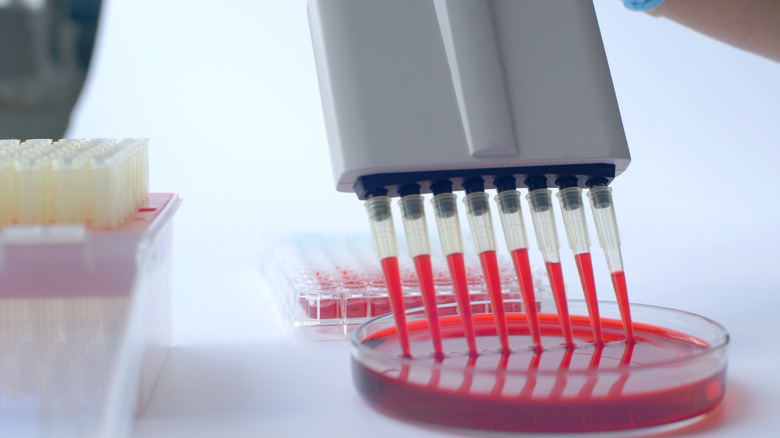What It Means When Your Alkaline Phosphatase Is Low
According to a 2014 study published in the Indian Journal of Clinical Biochemistry, alkaline phosphatase (ALP) is an enzyme that is produced by several tissues in the body, including the liver, bone, and placenta. ALP plays a role in several important processes in the body, including the breakdown of proteins, says Healthline. ALP is typically measured in a blood test to help diagnose and monitor certain medical conditions.
The normal range for alkaline phosphatase (ALP) in the blood varies depending on the laboratory that is performing the test and the specific method used to measure ALP. Generally, the normal range for ALP is between 44 and 147 units per liter (U/L), per Medical News Today. ALP levels can be affected by various factors, including age, gender, blood type, and whether or not you're pregnant, explains Healthline. It's important to speak to your doctor to determine whether your alkaline phosphatase levels are normal based on your individual circumstances.
What causes low alkaline phosphatase levels
Low ALP levels may be caused by a variety of factors. One of them is malnutrition. According to Medline Plus, malnutrition is characterized by a low intake of certain nutrients, such as protein, vitamins, fats, and carbohydrates. Malnutrition can be caused by various factors, including an inability to absorb nutrients, per the National Health Services (NHS).
According to WebMD, low ALP levels may also be low in people who have a deficiency in certain nutrients, such as zinc and magnesium but can also be caused by hypophosphatasia, a rare genetic disease affecting the teeth and bones. According to Cleveland Clinic, ALP levels may be low in people with hypothyroidism. Hypothyroidism is a medical condition characterized by a lack of production of the thyroid hormone in the thyroid gland, a small butterfly-shaped gland located in the neck, explains Healthline. The thyroid gland produces hormones that regulate the body's metabolism, which is the process by which the body converts food into energy. When the thyroid gland does not produce enough thyroid hormone, it can cause a wide range of symptoms, including weight gain, fatigue, dry skin, depression, and constipation.
Treatment for low alkaline phosphatase levels
Treatment for low ALP levels may involve addressing the underlying cause of the low levels, such as addressing malnutrition or correcting a nutrient deficiency. Treatment options may include diet modification. If low ALP levels are caused by malnutrition or a deficiency in certain nutrients, your doctor might advise modifying your diet to include more of those nutrients. For example, if your low ALP levels are caused by a magnesium deficiency, increasing the intake of foods high in magnesium might help. Such foods may include leafy green vegetables (such as spinach and kale), nuts and seeds (such as almonds and pumpkin seeds), and fish (via Healthline). Other foods recommended by Medical News Today include fruits, vegetables, and whole grains.
Speaking with a healthcare provider for further evaluation and guidance is important. They can help to determine the cause of any abnormal ALP levels and recommend appropriate treatment options.



